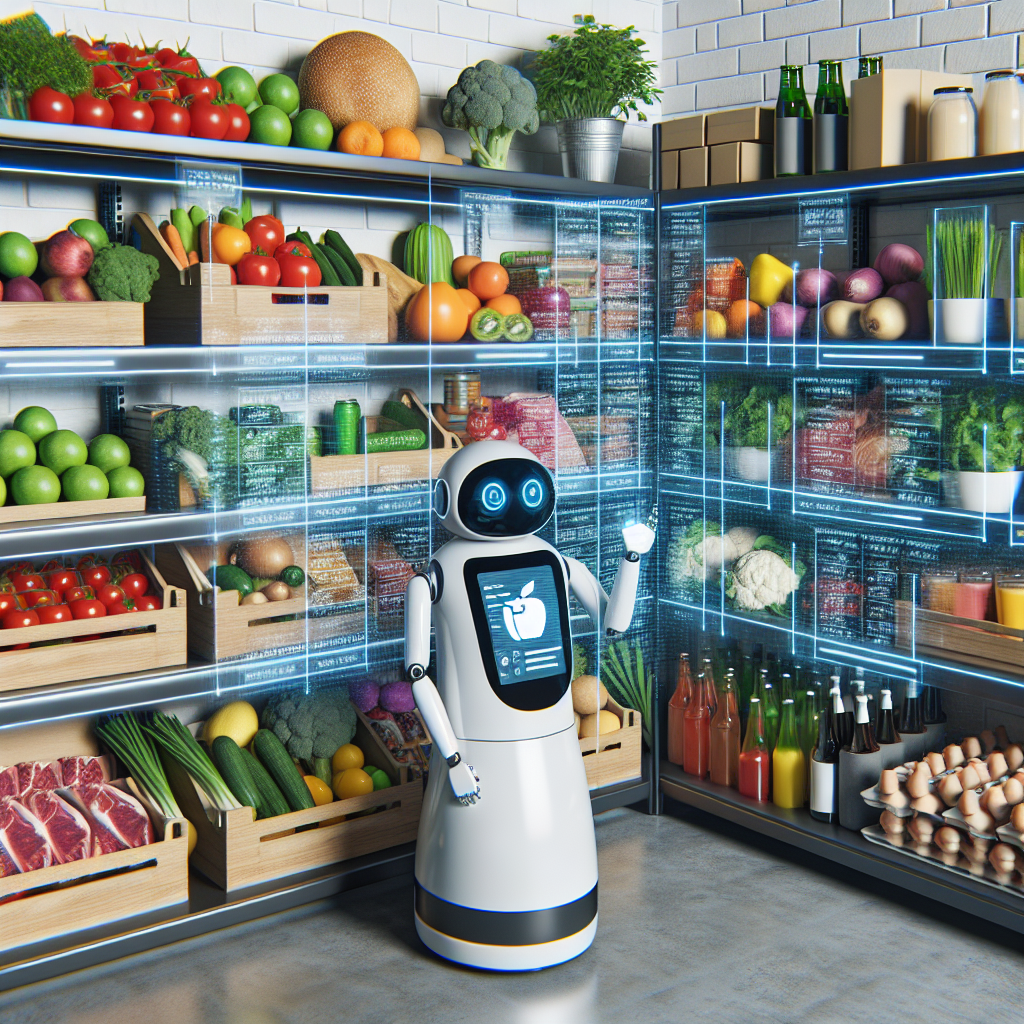In today’s fast-paced restaurant industry, effective inventory management is crucial for ensuring smooth operations and maximizing profitability. With the rise of artificial intelligence (AI) technology, restaurants now have access to powerful tools that can revolutionize the way they manage their food and beverage inventory.
AI-powered inventory management systems use advanced algorithms and machine learning techniques to analyze data and make intelligent predictions about inventory levels, ordering patterns, and consumption trends. By leveraging AI, restaurants can optimize their inventory processes, reduce waste, and improve overall efficiency.
The Role of AI in Enhancing Food and Beverage Inventory Management
1. Forecasting and Predictive Analytics
One of the key benefits of AI in inventory management is its ability to forecast demand and predict consumption patterns. By analyzing historical data, AI algorithms can identify trends and seasonality factors that can help restaurants make more accurate inventory decisions. This allows restaurants to anticipate fluctuations in demand, adjust their ordering levels accordingly, and avoid overstocking or understocking.
2. Real-Time Monitoring
AI-powered inventory management systems can provide real-time visibility into inventory levels, allowing restaurants to track their stock levels and make informed decisions on the fly. This real-time monitoring can help restaurants identify potential shortages or excess inventory, enabling them to take immediate action to address these issues.
3. Automated Ordering
AI can automate the ordering process by analyzing inventory levels, consumption trends, and supplier lead times to generate optimal order quantities. This reduces the manual effort required to place orders and minimizes the risk of human error. By automating the ordering process, restaurants can ensure that they always have the right amount of inventory on hand, without the need for frequent manual interventions.
4. Waste Reduction
AI can help restaurants reduce waste by accurately predicting demand and optimizing inventory levels. By minimizing overstocking and spoilage, restaurants can save money and reduce their environmental impact. AI-powered inventory management systems can also identify slow-moving or expired inventory, allowing restaurants to take proactive measures to reduce waste and improve their bottom line.
5. Supplier Management
AI can also enhance supplier management by analyzing supplier performance data and identifying opportunities for cost savings and efficiency improvements. By evaluating supplier lead times, pricing, and quality metrics, AI can help restaurants make informed decisions about which suppliers to work with and negotiate better terms. This can result in cost savings and improved overall supply chain management.
FAQs
Q: How can AI help restaurants improve their inventory management processes?
A: AI can help restaurants improve their inventory management processes by providing accurate demand forecasting, real-time monitoring of inventory levels, automated ordering, waste reduction, and enhanced supplier management capabilities.
Q: What are the benefits of using AI-powered inventory management systems in restaurants?
A: The benefits of using AI-powered inventory management systems in restaurants include improved accuracy in demand forecasting, reduced manual effort in ordering processes, real-time visibility into inventory levels, waste reduction, and enhanced supplier management capabilities.
Q: How can restaurants implement AI in their inventory management processes?
A: Restaurants can implement AI in their inventory management processes by investing in AI-powered inventory management software, training staff on how to use the technology effectively, and integrating AI into their existing inventory management workflows.
Q: What are some challenges associated with implementing AI in inventory management?
A: Some challenges associated with implementing AI in inventory management include the initial cost of investment in AI technology, the need for staff training and education, data privacy and security concerns, and the potential for resistance to change among staff members.
In conclusion, AI has the potential to revolutionize food and beverage inventory management in restaurants by providing advanced forecasting, real-time monitoring, automated ordering, waste reduction, and enhanced supplier management capabilities. By leveraging AI technology, restaurants can optimize their inventory processes, reduce waste, and improve overall efficiency, ultimately leading to improved profitability and customer satisfaction.

